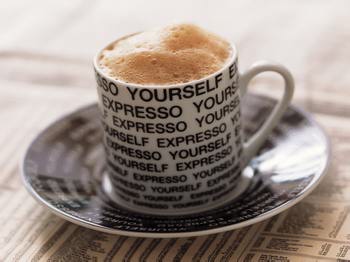Turkish coffee culture is the first nation to secularize coffee drinks.
If you walk through the streets of Milan in the evening, you will find a faint aroma of coffee floating in the air in the quiet alley. At the end of the alley, there is a warm cafe where you can relax and enjoy afternoon tea. Accompanied by jazz and coffee, the soul interacts warmly, here, coffee is not only coffee, time can also be very slow.

Tahartoros, author of the history of Turkish coffee published on the origin of cafes, pointed out that although coffee was first introduced from Yemen, Turkey was the first nation to secularize coffee drinks. More than 300 years ago, soldiers of the Turkish Ottoman Empire were defeated in the siege of Vienna, leaving several sacks of coffee when they retreated. Europeans thought it was camel feed. It was later discovered that the beans were a refreshing agent for Turkish officers and soldiers, and they tasted good. A clever businessman bought the coffee beans left by the Turks during their retreat and opened the first coffee shop in Vienna. Western countries are addicted to coffee as a result, and Turkey can be called the first coffee teacher for Europeans.
The merchant of Venice first brought coffee to Europe in 1615. At this time, the other two hot drinks began to rise quietly in Europe. The first is hot chocolate, which was brought to Spain from the United States by the Spaniards in 1528; the other is tea, which was first sold in Europe in 1610. At first, coffee was mainly sold by lemonade vendors, so it was considered to have medicinal properties.
The first European cafes appeared in Venice in 1683, the most famous of which was the Florida Cafe in St. Mark's Square, which opened in 1720 and is still open to commercial activities today. Lloyd, the world's largest insurance company, started out as a cafe by Edward. Lloyd started it in 1688 and prepared a list of insurance ships for his customers.
The origin of coffee or coffee shop always appears in front of us at the same time as literature, music and painting. it is true that coffee shop is not an educational institution, but it has nourished generations of great masters of art and ideas. The cafe frees people from vulgarity and awakens excellence. What he has achieved is not a soulless specialist, but to become a literate person.
Important Notice :
前街咖啡 FrontStreet Coffee has moved to new addredd:
FrontStreet Coffee Address: 315,Donghua East Road,GuangZhou
Tel:020 38364473
- Prev

Joyce and Coffee Coffee and the Cultural History of celebrities
Corresponding to the hundred poems of wine fighting in the East, coffee has also been endowed with the status of legendary potion in western literature. Today, Espresso and its derivatives are synonymous with literary coffee, and the birth of Espresso is closely related to the eastern Italian city of Trieste. Although the celebrity list of cafes here is not as dazzling as that of Rome and Paris, it also has its own pride.
- Next

Different ways of drinking coffee Viennese coffee
In fact, only half of each cup of coffee is made of coffee beans and other things, and the other half is a complex thing called feeling. And Vienna, it is this kind of coffee called feeling. Viennese coffee has its own unique way of drinking: no stirring, first cold cream, then hot black coffee, and finally enjoy the taste of sugar mixed in the coffee; these three
Related
- How did the Salvadoran coffee industry develop in Central America?
- What exactly does the golden cup extraction of coffee mean?
- The Origin of Coffee flower
- [2023 Starbucks World Earth Day] there are more meaningful things besides free Starbucks coffee!
- What kind of coffee is there in Spain? 9 Flavors of Spanish Coffee
- Aromatic African coffee| Kenya's coffee culture and historical production area
- Liberica Coffee Bean knowledge: the characteristics of Liberian Coffee beans of the three original species of Coffee beans
- The origin and formula of Spanish latte introduces the taste characteristics of Bombon coffee in Valencia, Spain.
- How to adjust the solution of over-extracted coffee
- What is the tasting period of coffee beans? What is the period of coffee and beans? How should coffee wake up and raise beans?

